第33章 12th August,1835(2)
These are its greatest,and,it may perhaps be said,its only defects;for if a regard for truth compel me to state that the style of the translation frequently sinks far below the original when at its lowest grade,that same regard compels me to say that in yet more instances it rises with the same [to a degree]which Ibelieve it is scarcely possible for any individual with the limited powers of uninspired man to surpass.This soaring tendency is particularly observable in the version of the Book of Job,which is certainly the most beautiful,is believed by many to be the most ancient,and is confessedly one of the most important portions of the Old Testament.I consider myself in some degree entitled to speak particularly of this part of the Mandchou version in question,having frequently at the time I was engaged upon it translated into English several of the chapters which particularly struck me,for the purpose of exhibiting them to Mr.Swan,who invariably sympathised with my admiration.The translation of most of the writings of the prophets,as far as Puerot went,has been executed in the same masterly manner,and it is only to be lamented that,instead of wasting much of his time and talents upon the Apocryphal writings,as is unfortunately the case,the ex-Jesuit left behind him no Mandchou version of Isaiah and the Psalms,the lack of which will be sensibly felt whenever his work shall be put in a printed state into the hands of those for whose benefit it is intended,an event most devoutly to be wished for by all those who would fain see Christ reign triumphant in that most extraordinary country of which the Mandchou constitutes one of the principal languages,being used in diplomacy and at court,and being particularly remarkable for possessing within it translations of all the masterpieces of Chinese,Tibetian,and Brahmanic literature with which it has been enriched since the period of the accession of the present Tartar dynasty to the Chinese throne,the proper language of which dynasty it is well known to be.
To translate literally,or even closely,according to the common acceptation of the term,into the Mandchou language is of all impossibilities the greatest;partly from the grammatical structure of the language,and partly from the abundance of its idioms.The Mandchou is the only one of any of the civilised languages of the world with which the writer of these lines has any acquaintance,whose grammar stands far aloof from the rest in wonderful singularity;the most remarkable feature of which is the want of some of those conjunctions generally considered as indispensable,and which are certainly of the first utility.The result of this peculiarity is that such a combination of other parts of speech must be employed as will express the idea without the aid of the conjunction;but as these combinations are invariably and necessarily lengthy,much more space is required in the translation of a sentence into this language than the original occupies.I am induced to make this remark,which I am afraid will be considered an excursory one,from the apprehensiveness that some,observing the translations of the Scriptures into this language to be bulkier than the originals,might conclude that extraneous and unnecessary matter had crept in,which a knowledge of the above fact will prevent.
The transcript of the Mandchou Old Testament having been brought to a conclusion and permission having been obtained to print the New at St.Petersburg -the accomplishment of which last point was,as you are well aware,attended with much difficulty -I set myself seriously to work upon the principal object of my mission.With the recapitulation of my labours I wish not to trouble you,the various particulars having been communicated to you in letters written at various times upon the subject.I will content myself with observing that within ten months from the commencement of printing,the entire work,consisting of eight volumes,had with the blessing of the Almighty passed through the press,and,Ibelieve,with as few typographical errors as would have been the case had a much more considerable portion of time been devoted to the enterprise,which,it is true,I was in haste to accomplish,but in a manner not calculated to render the undertaking futile nor cast discredit upon the Society and myself [being well aware that an edition of the Scriptures exhibiting marks of carelessness must at best be a futile work,and that the speed with which it was executed could be no apology;as few will be tempted to deny that no edition at all of the sacred volume in the languages of the heathen is far preferable to one whose incorrectness would infallibly and with some reason awaken ridicule,which,though one of the most contemptible,is certainly one of the most efficacious weapons in the armoury of the Prince of Darkness and the Enemy of Light,as it is well known that his soldiers here on earth accomplish by its means what they would never be able to effect by the utmost force of eloquence and carnal reasoning,in the use and management of which they are,however,by no means unskilled,as many a follower of Jesus from his own individual experience can testify].
After the termination of my editorial task,having little to employ myself upon whilst the two last volumes were undergoing the process of binding,I determined upon a journey to Moscow,the ancient capital of the Russian Empire,which differs widely from St.